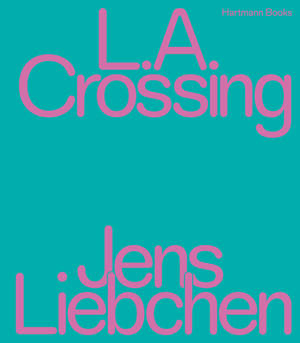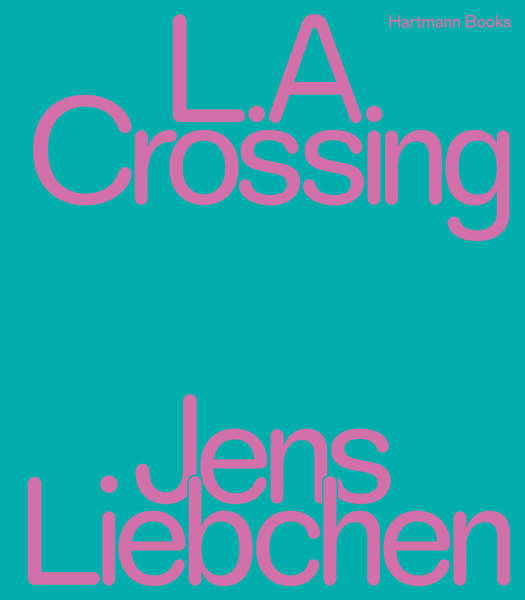
- Retrait gratuit dans votre magasin Club
- 7.000.000 titres dans notre catalogue
- Payer en toute sécurité
- Toujours un magasin près de chez vous
- Retrait gratuit dans votre magasin Club
- 7.000.0000 titres dans notre catalogue
- Payer en toute sécurité
- Toujours un magasin près de chez vous
Description
((Please scroll down for english version))Tausende Kilometer mit dem Auto und der Kamera durch Los Angeles - Traum oder Albtraum? In seinem seit 2010 entstandenen Langzeitprojekt L.A. CROSSING zeigt uns Jens Liebchen die Hauptstadt der bedingungslosen Mobilität so, wie sie von den meisten ihrer Bewohner bevorzugt wahrgenommen wird: durch die Fenster ihrer Autos. Aus dem fahrenden Auto heraus blickt Liebchen auf eine Stadt die die Gegensätze von Utopie und Dystopie in sich vereint. Dabei klingt L.A. Crossing selbst wie der Titel eines Films und so wird die Strasse zur Bühne und die Fotografie zu einer Art Standbild. In das betörende kalifornisches Licht getaucht erscheint die Stadt dabei als fiktiv und real zugleich. Eine Ikone der Fotokunst, Stephen Shores Bild »La Brea/Beverly« dient als theoretischer Aufhänger Liebchens Arbeit. Ausgehend vom »La Brea Matrix Projekt«, in dessen Zentrum besagtes Foto stand, hat Liebchen den Blick umgekehrt und blickt nun von der Strasse zurück auf die Stadt. Weder hält er an, wie Lee Friedlander (in »America by Car«), noch ordnet er sich einer strengen Systematik unter, wie Ed Ruscha (in »Every Building on the Sunset Strip«). Liebchen fährt und fährt und fährt. Aus der privilegierten und klimatisierten Perspektive des Fahrersitzes offenbaren sich dabei Licht- und Schattenseiten der Traumfabrik. Großes Kino.Jens Liebchen (*1970) arbeitet seit seinem Studium der Ethnologie als freiberuflicher Fotograf. Seine Arbeiten und wurden weltweit ausgestellt und befinden sich unter anderem in der Sammlung der DZ BANK Kunstsammlung in Frankfurt a.M. und des Museum of Contemporary Art, Los Angeles. Liebchen lebt und arbeitet in Berlin. Er wird von der Galerie Springer vertreten.Thousands of kilometers by car and camera through Los Angeles - dream or nightmare? In his long-term project L.A. CROSSING, which has been in the making since 2010, Jens Liebchen shows us the capital of unconditional automotive mobility like most of its inhabitants prefer to look at it: through the windows of their cars. Out of the moving car, Liebchen looks at a city that embodies the opposites of utopia and dystopia. L.A. Crossing itself sounds like the title of a movie, accordingly the street becomes a stage and the photography becomes a kind of still image. Bathed in the beguiling Californian light, the city appears fictitious and real at the same time. An icon of photographic art, Stephen Shore's image »La Brea/Beverly« serves as a theoretical starting point for Liebchen's work. Beginning with the »La Brea Matrix Project«, which was centered around said photo, Liebchen has reversed the common view and now looks back from the street to the city. Neither does he stop, like Lee Friedlander (in "America by Car"), nor does follow a strict gird like Ed Ruscha (in "Every Building on the Sunset Strip"). Liebchen drives and drives and drives. From the privileged and air-conditioned perspective of the driver's seat, the City of Angels lights and shadows are revealed.Jens Liebchen (*1970) has been working as a freelance photographer since his studies of ethnology. His works and have been exhibited worldwide and can be found, among others, in the collection of the DZ BANK Kunstsammlung in Frankfurt a.M. and the Museum of Contemporary Art, Los Angeles. Liebchen lives and works in Berlin. He is represented by Springer Gallery.
Spécifications
Parties prenantes
- Auteur(s) :
- Editeur:
Contenu
- Nombre de pages :
- 96
- Langue:
- Allemand
Caractéristiques
- EAN:
- 9783960700869
- Date de parution :
- 30-05-22
- Format:
- Livre relié
- Dimensions :
- 280 mm x 320 mm
- Poids :
- 967 g

Les avis
Nous publions uniquement les avis qui respectent les conditions requises. Consultez nos conditions pour les avis.






